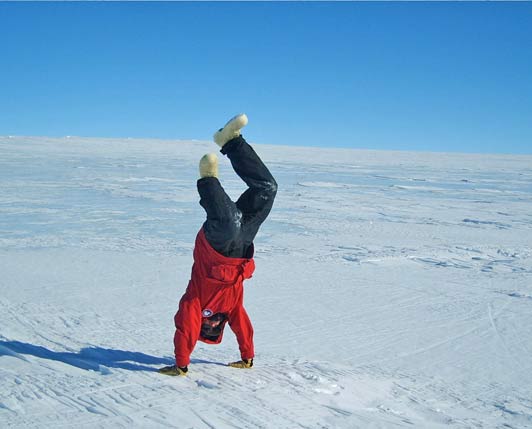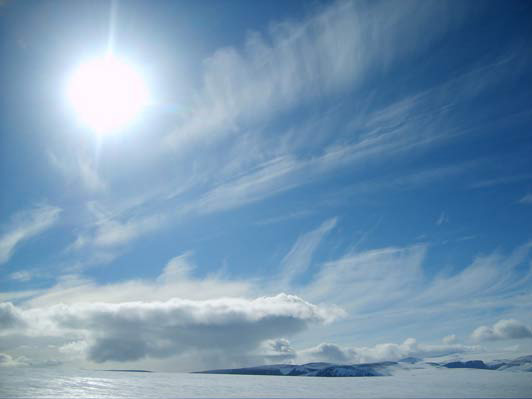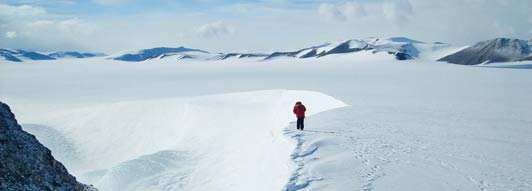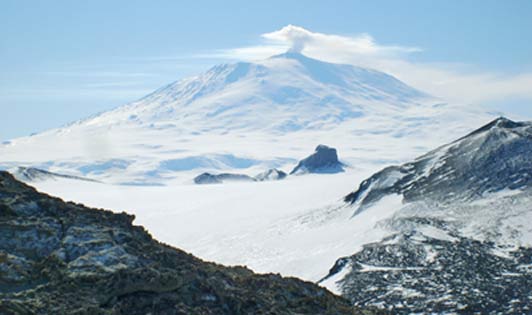Antarctica – Travel in The Unconquered Land

“I’m afraid I don’t have any wildlife pics. I have a couple of really bad pictures of a far-off seal, but that’s all. The places we went didn’t have anything alive at all. The cruises and such visit the Antarctic Penninsula, which extends north towards Argentina and has penguin rookeries, sea lions, seals, etc. The folks at McMurdo Station jokingly refer to that area as ‘the tropics.’ ” Marc Fries, Ph. D.
I’ve learned a lot from reading the comments you’ve written on the Win a Free Four-Night Getaway to Carmel article. For one thing, lots of you would like to go to Italy, which doesn’t surprise me because I love Italy, too. So now, I know to write more articles about Tuscany, Rome, and other areas, and things to do, and places to eat, AND I am organizing a Getaway to Italy contest that is going to be very exciting. Stay tuned for more about that.
The big surprise from the comments, however, is that a number of people would really like to go to Antarctica. Frankly, I just never thought much about Antarctica one way or the other, but your wish is my command, so I asked my buddy Marc Fries, Ph.D., who has been there twice, to share his experience with us. He kindly complied:
Antarctica – Travel in The Unconquered Land
Antarctica is the far end of the world. It is an alien land, hostile and far from everywhere. It has no natives, no trees, and no cities; it is a vast open place, wild not because it has been set aside as a park or preserve, but because it is too difficult to reach and too big to contain. The animals that do manage to live there constantly ride the thin margins between themselves and starvation, exposure, or predation. This land has its own weather unlike any on the planet, composed of an endless parade of storms called the Antarctic Gyre. And it is completely surrounded by the gusty, slate-grey Southern Ocean which isolates it from any other continent. It is an unforgiving place.
And it is unspeakably beautiful.
Antarctica is a “big” place in a way that no other land can mimic. The sky seems larger. The winds always seem to blow from some far, far off place. And in fact they do – katabatic storms can blow non-stop for days on end, bringing cold, dry air off of the South Polar interior itself. In winter the Sun never rises, and in summer the day literally does not end. The Sun neither sets nor rises above you, instead it’s constantly circling the horizon, leaving you to feel like the resident of some sort of giant sundial. I’ve been there. My name is Marc Fries, and I am one of the tiny sub-set of humanity lucky enough to have been to Antarctica twice, traveling into the deep interior to collect meteorites as a member of the Antarctic Search for Meteorites (ANSMET) expedition. I am fortunate, in that I have traveled to places so remote that the only rocks you find had fallen there from other worlds. My days were spent at the complete mercy of the weather. My nights were spent within inches of the ice, lulled to sleep by the popping and cracking of the endlessly moving, cracking ice sheet which extended for many kilometers down to unseen, ice-sheared bedrock.
It is a wild land like none other in the world. If you go, you will marvel. And when you leave, you leave it as powerful and feral as the day you arrived. You do not change Antarctica – the unconquered continent will go on the same as it was before you arrived. But all Antarctic veterans gain a new-found understanding of grandeur, and an appreciation of the unconquered continent that will follow them for all the days of their lives. Time spent reminiscing is time spent quietly, with a reverence that most people reserve for religious experiences.

“The Sun neither sets nor rises above you, instead it’s constantly circling the horizon, leaving you to feel like the resident of some sort of giant sundial.” Marc Fries, Ph.D.
Antarctica has no government, and management of the continent is handled by individual nations under the terms of the Antarctic Treaty. For U.S. travelers, the U.S. National Science Foundation facilities, such as McMurdo, Palmer, Byrd and the South Pole station, are not open to visits by tourists.
However, there are several private firms which facilitate travel to Antarctica. Travel experiences are available that range from the expeditionary to the luxurious, and there are basically two kinds of Antarctic visits – sea voyages and overland travel. For sea travel, National Geographic operates their own Antarctic cruises. A company named Polar Cruises also handles travel on a variety of cruises ranging from “luxury expedition,” “expedition,” and small-group passenger options. Polar Cruises also offers a series of land-based options. These options include trips to the South Pole, and even ski trips that include travel to within a relatively short distance of the Pole where you ski the last distance to the bottom end of the world.
Regardless of the type of trip, however, time spent in Antarctica is an experience without parallel.

Marc’s work took him to the East Antarctic Ice Sheet. The peaks in the background are the Transantarctic Mountains.
Category: Antarctica














